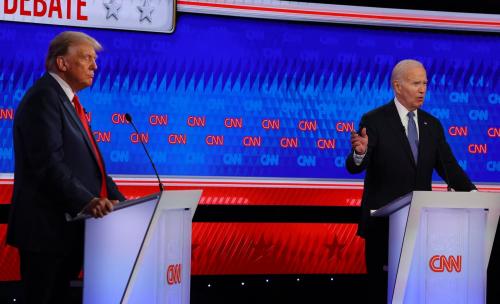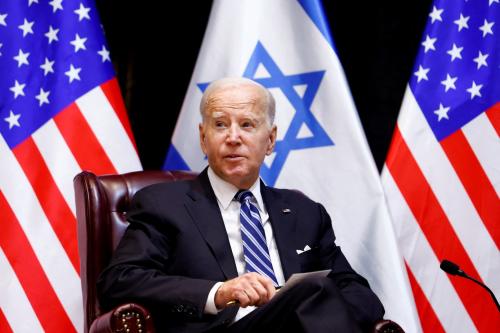Since the creation of televised presidential debates, they’ve always mattered, sometimes dramatically but it takes some time for the debate effects to surface in the public. Since 1976, the first debate of a presidential year has shifted voters’ preferences by an average of 2.4 percentage points during the two weeks following the debate, almost always against the incumbent president (or the incumbent’s party when the president is not running for reelection). Today, although it has only been one week since the Biden-Trump debate, we can already see the effect of the debate on voter preferences and the news for Biden is not good.
In today’s polarized politics, more than nine in 10 Democrats and Republicans automatically support their party’s candidate. In the past three presidential elections, the first debate has moved voters’ preferences by an average of 2.8 percentage points. And because we are closely as well as deeply divided, with elections decided by small margins, changes of this size can be decisive.
It appears that the first presidential debate of 2024 will be no exception to this pattern. By intensifying doubts about President Biden’s mental fitness to carry out his duties during a second term, it has increased former president Trump’s lead by about 2 percentage points. His lead on the eve of the debate was 1.5 points, but the surveys conducted in the week after the debate show him with an average lead of 3.5 points, as Table 1 shows.
The 2 percentage point shift toward Donald Trump since the debate is significant. Because Democrats rack up much larger margins than they need in large Blue states, they need a substantial popular vote lead to win in the Electoral College. For instance, in 2020, Joe Biden’s 4.5-point margin in the popular vote was barely enough to secure a victory in the Electoral College. The margin Biden needs in 2024 may be substantially lower because Trump is gaining support in Blue states such as New York that he is unlikely to win in November, reducing the efficiency of his vote distribution.
Still, no one thinks that Biden can win 270 electoral votes with a popular vote edge of less than 1.5 points. Before the debate, this meant that Biden needed to improve his popular vote showing by a minimum of 3 points, from -1.5 to +1.5. After the debate, he will need at least a 5-point gain, from -3.5 to +1.5. He is in a deeper hole than he was a week ago, and there’s no evidence that he has hit bottom yet.
Still, the debate is not the sole source of President Biden’s weakness. He had fallen behind Trump months before he even challenged him to debate. Doubts about his age had combined with high prices and a surge of immigrants across the southern border to reduce his standing with the public, problems that his feeble performance and inability to formulate a forceful defense of his record only exacerbated. Even if he manages to withstand rising calls from his own party to withdraw from the presidential contest, there is no clear plan to turn things around, and time is getting short.
The Brookings Institution is committed to quality, independence, and impact.
We are supported by a diverse array of funders. In line with our values and policies, each Brookings publication represents the sole views of its author(s).






Commentary
Biden’s debate performance threatens his ability to win
July 5, 2024